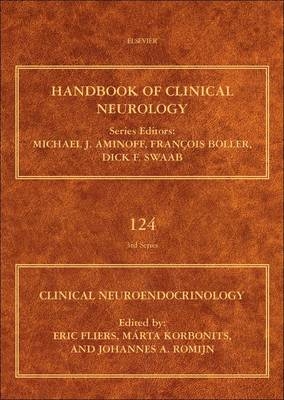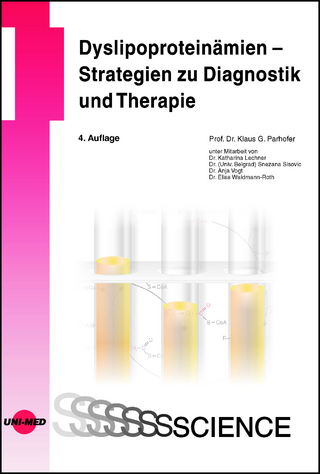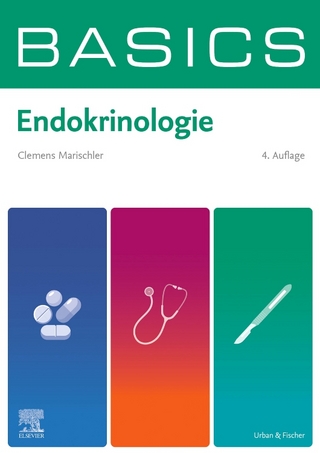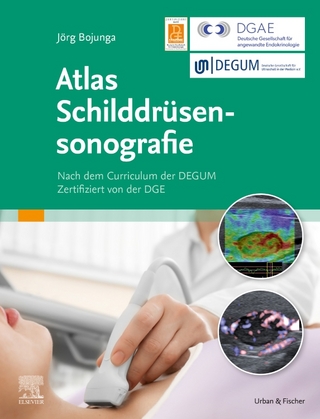
Clinical Neuroendocrinology
Elsevier Science Ltd (Verlag)
978-0-444-59602-4 (ISBN)
Eric Fliers is Professor of Endocrinology at the University of Amsterdam, serving as head of the Department of Endocrinology and Metabolism at the Academic Medical Center in Amsterdam since 2007. He received a PhD in Neuroscience on the functional neuroanatomy of the human hypothalamus, followed by his MD (with honors), both from the University of Amsterdam. He was subsequently trained as an internist-endocrinologist. Fliers was one of the founders of the Netherlands Brain Bank. His current research interests include the hypothalamus-pituitary-thyroid axis, and the neuro-endocrine response to illness. Eric Fliers is the current chair of the Dutch Endocrine Society. Prof. Márta Korbonits is a clinical academic endocrinologist with special interest in pituitary tumorigenesis and as well as metabolic effects of hormones. She graduated in medicine at Semmelweis Medical School in Budapest and works in the Department of Endocrinology at Barts and the London School of Medicine at St. Bartholomew’s Hospital in London since 1991, where currently she is Co-Centre Head. She received an MD and a PhD from the University of London and was a recipient of a Medical Research Council Clinician Scientist Fellowship to study ghrelin physiology and genetics. Her current interests include hormonal regulation of the metabolic enzyme AMP-activated protein kinase, the physiology and pathophysiology of ghrelin and endocannabinoids and pituitary tumours including familial cases. She has a large collection of familial isolated pituitary adenoma families and works on both the clinical characterization as well as molecular aspects of this disease. She has published over 160 papers, numerous book chapters, and edited two books in the field of Endocrinology and has been an invited speaker on medical conferences all over the world. She serves on the editorial board of several prestigious endocrine journals and serves as referee for numerous high-impact journals and grant-giving bodies. She was heading the Program Organizing Committee of the Society for Endocrinology for three years, served on the Executive Committee of the Pituitary Society and ENEA and currently the European Society of Clinical Investigation and is an elected member of the Association of Physicians of Great Britain and Ireland. She has received numerous awards including the Nicholas Zervas Lectureship at Massachusetts General Hospital, Harvard Medical School and the prestigious Society for Endocrinology Medal.She shares her time between clinical patient care, clinical research and laboratory based research as well as teaching at undergraduate and postgraduate level. Johannes A. (Hans) Romijn was trained in internal medicine in the Academic Medical Center, University of Amsterdam, followed by fellowships in intensive care and clinical endocrinology. He was professor and chairman of Medicine and of Endocrinology at the Leiden University Medical Center, The Netherlands between 1998 and 2010. Since 2010 he serves as professor and chairman of the Division and Department of Medicine, Academic Medical Center, University of Amsterdam in The Netherlands. He is currently the Editor-in-Chief of the European Journal of Endocrinology, the leading journal of the European Society of Endocrinology. His research focuses on the pathophysiology of endocrine and metabolic regulation, with a special focus on clinical neuroendocrinology.
Section 1 Clinical aspects of hypothalamic function
Development
1. Genetic aspects of hypothalamic and pituitary gland development
2. Neuroendocrinology of pregnancy and parturition
Vasopressin, oxytocin, CRH
3. Disorders of water metabolism: diabetes insipidus and the syndrome of inappropriate antidiuretic hormone secretion
4. Oxytocin and vasopressin’s role in emotional and social behaviors
5. Corticotrophin-releasing hormone and the hypothalamic-pituitary-adrenal axis in psychiatric disease
Metabolism
6. Genetic aspects of human obesity
7. Sleep characteristics and insulin sensitivity in humans
8. Hypothalamic neuropeptides in critical illness
9. Central regulation of the hypothalamo-pituitary-thyroid (HPT) axis – focus on clinical aspects
Section 2 Disorders of the pituitary gland
Diagnostic approach
10. Evaluation of pituitary function
11. Imaging of pituitary pathology
Pituitary pathologies
12. Non-functioning pituitary tumors
13. Hyperprolactinemia and prolactinoma
14. Acromegaly
15. Cushing's disease
16. Craniopharyngioma
17. Rathke’s cleft
18. Alternative causes of hypopituitarism: traumatic brain injury, cranial irradiation and infections
Therapeutic approach to pituitary tumors
19. Surgical approach to pituitary tumors
20. Medical approach to pituitary tumors
21. Radiation therapy in the management of pituitary adenomas
Section 3 Controversial issues and hot topics
22. Nelson Syndrome, definition and management
23. Familial pituitary tumours
24. Long-term effects of treatment of pituitary adenomas
25. Neuroendocrine mechanisms in athletes
26. Uncertainties in endocrine substitution therapy for central hypocortisolism
27. Uncertanties in endocrine substitution therapy for central endocrine insufficiencies: Hypothyroidism
28. Uncertanties in endocrine substitution therapy for central endocrine insufficiencies: growth hormone deficiency
29. Autoimmune hypophysitis: new developments
| Erscheint lt. Verlag | 9.10.2014 |
|---|---|
| Reihe/Serie | Handbook of Clinical Neurology |
| Verlagsort | Oxford |
| Sprache | englisch |
| Maße | 195 x 260 mm |
| Gewicht | 1460 g |
| Themenwelt | Medizinische Fachgebiete ► Innere Medizin ► Endokrinologie |
| Medizin / Pharmazie ► Medizinische Fachgebiete ► Neurologie | |
| Studium ► 1. Studienabschnitt (Vorklinik) ► Biochemie / Molekularbiologie | |
| ISBN-10 | 0-444-59602-X / 044459602X |
| ISBN-13 | 978-0-444-59602-4 / 9780444596024 |
| Zustand | Neuware |
| Haben Sie eine Frage zum Produkt? |
aus dem Bereich


